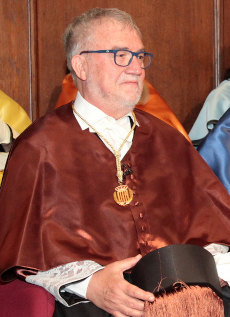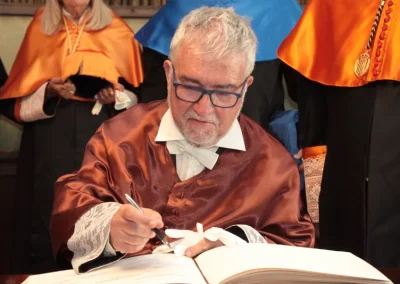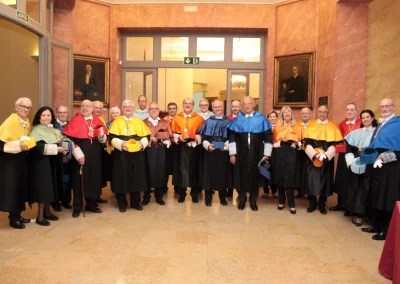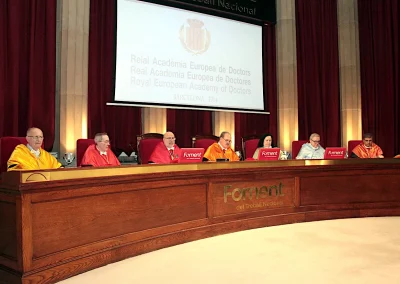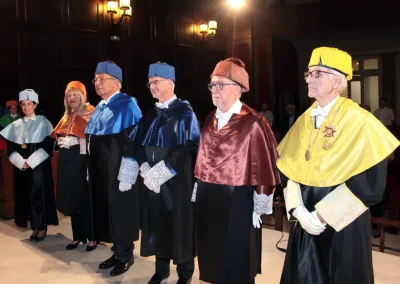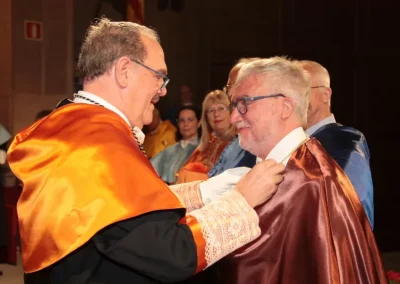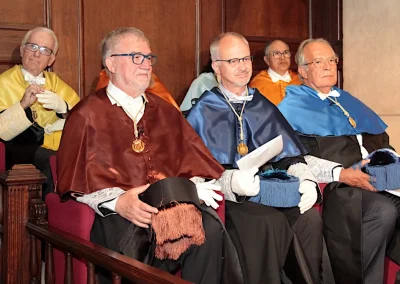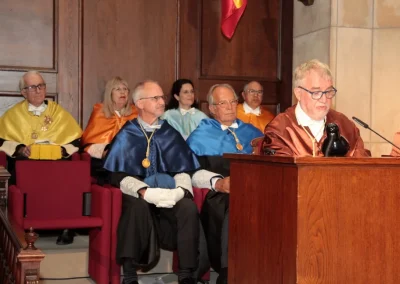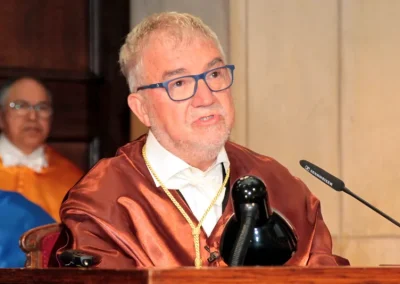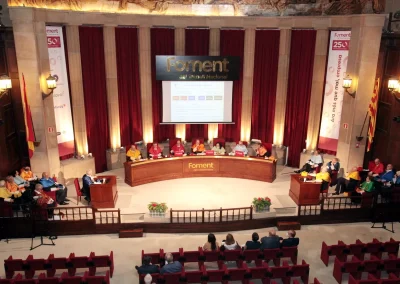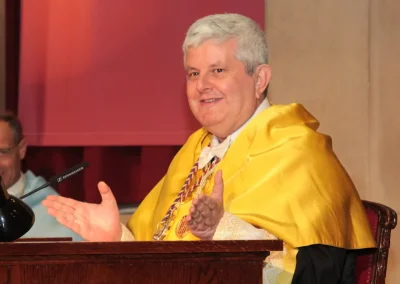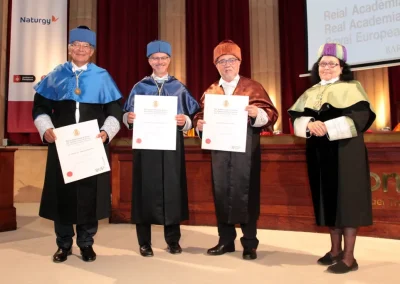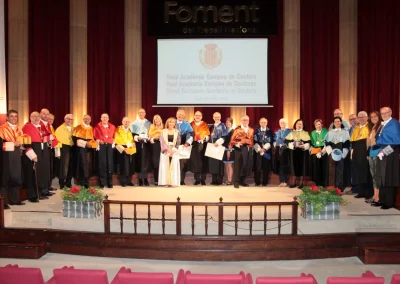Honorary Academician
Technological Sciences: Doctor of Telecommunications Engineering
Date of admission: June 15, 2022
Admission speech: «Customary Reflections of a Computer Scientist on the Finite and the Infinite»
Reply speech: Dr. José Ramón Calvo Fernández, Doctor of Medicine and Surgery
Director of the Barcelona Supercomputing Center (BSC-CNS): A world pioneer in computer architecture and recipient of the Eckert-Mauchly Award, the highest international recognition in computer science.
DR. MATEO VALERO CORTÉS
TEACHING AND PROFESSIONAL ACTIVITY
- Selected for the European Hall of Fame as one of the 25 most influential researchers in information technologies of the past 25 years.
- Professor and active researcher, Prof. Mateo Valero is internationally recognised for his contributions to Computer Architecture.
- Director of the Barcelona Supercomputing Centre (BSC), which he founded in 2005 and is today one of the world’s leading supercomputing institutions.
- Design of vector, superscalar, multicore, VLIW, multithreaded, and systolic processors.
- Advances in interconnection networks, multiprocessor systems, transactional memory, and compilers for VLIW architectures.
- His contributions have directly influenced processors and compilers from companies such as Cray, Intel, Compaq, NEC, IBM, Sun, HP, and Equator.
- Individual research grant from the ERC (2013–2018), to investigate “Runtime-Aware Architectures”.
- Promoter of the European Research Programme in Computer Architecture and Compilers and founder of the HiPEAC network, with over 2,000 researchers from industry and academia.
- Promoter of the European microprocessor challenge, aiming to develop European pre-exascale (2020) and exascale (2023) supercomputers.
- Has led the creation of major research centres, including the European Centre for Parallelism of Barcelona (CEPBA) in 1991, a pioneer in parallel supercomputing in Spain; the CEPBA-IBM Research Institute (CIRI) in 2000, the first IBM institute in a European university and collaborator in projects such as BlueGene; and the Barcelona Supercomputing Centre (BSC) in 2005, which he founded and directed. Its first supercomputer, MareNostrum I, ranked as Europe’s fastest and the world’s fourth for three consecutive years.
PUBLICATIONS
- Author of over 700 publications (h-index = 57) and more than 600 invited lectures.
AWARDS AND DISTINCTIONS
- IEEE-ACM Eckert-Mauchly Award (2007): for his “extraordinary leadership in creating a world-class research centre in computer architecture, seminal contributions to vector and multithreaded computing, and pioneering new basic approaches to instruction-level parallelism”.
- IEEE Seymour Cray Award (2015): for “seminal contributions to vector, out-of-order, multithreaded, and VLIW architectures”.
- IEEE Charles Babbage Award (2017): for “contributions to parallel computing through outstanding technical research, mentoring of PhD students, and creation of a highly productive European research environment”.

